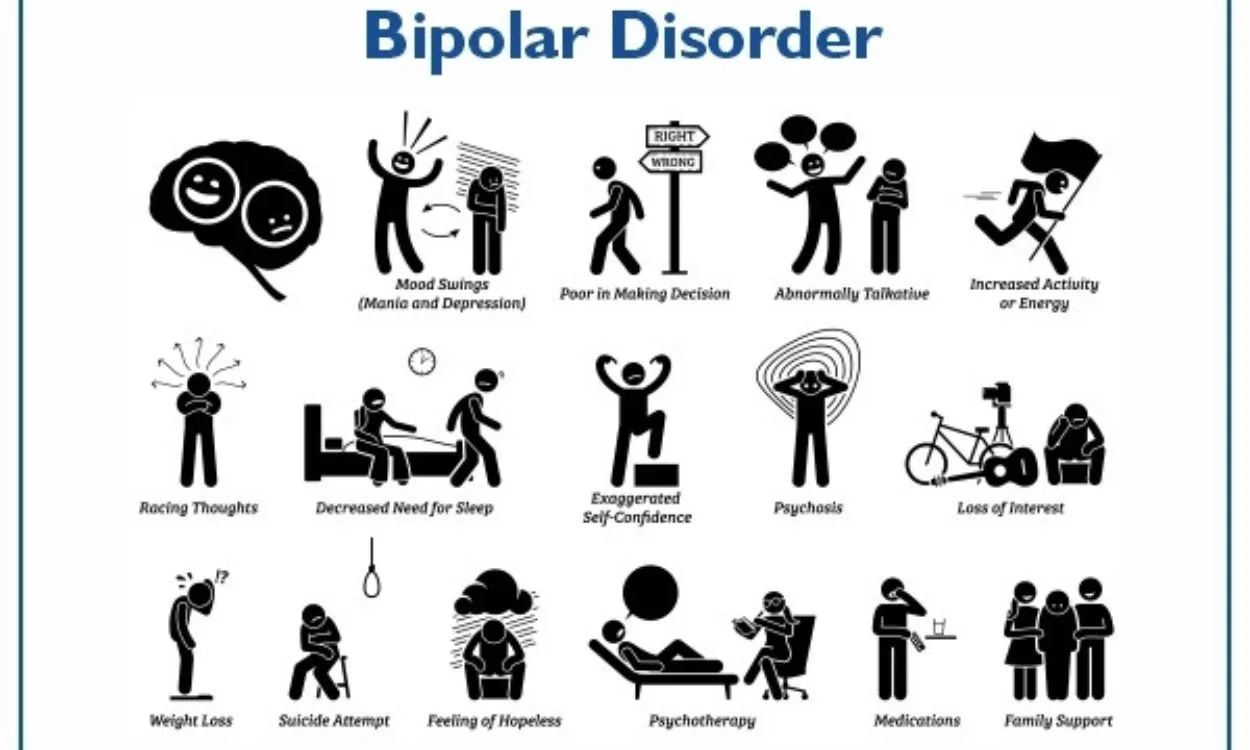What are some strategies for managing bipolar disorder?
Bipolar disorder is a mental health condition characterized by extreme mood swings, including episodes of mania and depression. Managing bipolar disorder can be challenging, but with the right strategies and support, individuals can lead fulfilling and balanced lives.
Here are some strategies that can help in managing bipolar disorder:
- Seek Professional Help:
- Consult with a psychiatrist or psychologist who specializes in bipolar disorder.
- Work closely with a mental health professional to develop an individualized treatment plan.
- Medication Management:
- Take prescribed medications consistently and as directed by the healthcare professional.
- Regularly communicate with the psychiatrist about any side effects or concerns.
- Do not stop or alter medication without medical supervision.
- Psychotherapy:
- Cognitive-behavioral therapy (CBT) can help identify and change negative thoughts and behaviors.
- Interpersonal and social rhythm therapy (IPSRT) focuses on stabilizing daily routines and managing relationships.
- Family-focused therapy involves educating family members about bipolar disorder and improving communication.
- Maintain a Routine:
- Establish a consistent daily routine for sleep, meals, and activities.
- Regulate sleep patterns by sticking to a regular sleep schedule.
- Avoid excessive caffeine or alcohol intake, as it can disrupt sleep and mood stability.
- Stress Management:
- Identify and reduce triggers that may lead to mood swings.
- Practice relaxation techniques such as deep breathing, meditation, or yoga.
- Engage in activities that promote relaxation and emotional well-being, such as listening to music or spending time in nature.
- Build a Support Network:
- Surround yourself with understanding and supportive family and friends.
- Join support groups or engage with online communities of individuals facing similar challenges.
- Educate loved ones about bipolar disorder to help them understand and provide necessary support.
- Healthy Lifestyle:
- Adopt a balanced diet rich in fruits, vegetables, whole grains, and lean proteins.
- Engage in regular physical exercise, such as walking, jogging, or dancing.
- Avoid substance abuse and maintain a healthy weight.
- Monitor and Track Symptoms:
- Keep a mood journal to track mood swings, triggers, and treatment effectiveness.
- Monitor sleep patterns, energy levels, and overall well-being.
- Share these records with the healthcare professional to guide treatment adjustments.
While these strategies can be effective in managing bipolar disorder, it is essential to remember that everyone’s experience with the condition is unique. It is crucial to work closely with healthcare professionals to develop an individualized plan that suits specific needs.
If you are looking for additional support in managing your mental health and overall well-being, the Fitpaa app can be a valuable tool. With Fitpaa, you gain access to a personal health and fitness team, including a fitness planner, fitness coach, nutritionist, and doctor. Together, they can help you develop a customized fitness plan based on your goals, lifestyle, and health condition. The Fitpaa app provides features such as a precision diet tracker, smart workout trainer, and real-time guidance to help you stay on track. By following your Fitpaa Capsule and utilizing the various tools and support available, you can work towards achieving your health and fitness goals with guaranteed results.
To experience the benefits of Fitpaa and begin your journey towards a healthier and happier life, download the Fitpaa app now. Your well-being is our mission, and we are here to support you every step of the way. Don’t let bipolar disorder hold you back from living your best life. Take charge of your mental health and start your transformation with Fitpaa today.









